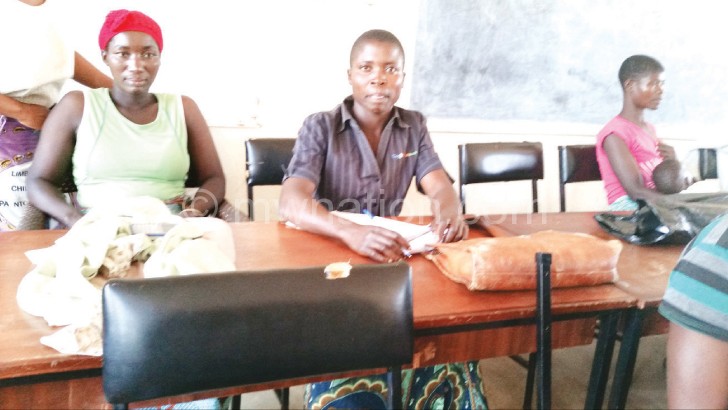Volunteer workers fighting malnutrition
Melise Phiri of Ilemba Village, Tradition Authority (T/A) Nthache in Mwanza, is in the queue to fetch water from the village borehole. She has her 11-month-old baby strapped on her back.
Other women admire her baby, saying it is plump and healthy. Little do they know that the baby is malnourished.
Volunteer child caregiver, Mercy Gaba, who happens to be passing by as the women discuss the baby’s chubbiness, overhears the conversation and decides to take a look at the baby.
To their surprise, Gaba tells Phiri that her baby is displaying symptoms of edema, one of the signs of kwashiorkor.

Having undergone several trainings, Gaba is able to identify signs of malnutrition in a child and has been of much help to many people in her community.
Says Gaba: “I have been working as a volunteer child caregiver for three years now. Our village head just announced that anyone willing to help in the promotion of child growth should come forward. That is when I registered.”
She advises Phiri to go to a nearby clinic with her child.
Gaba also encourages Phiri and other mothers in the area to register their under-five children at Nkuyu Community-based Childcare Centre (CBCC), where she works as a caregiver, so the children can play and receive nutritious food and other essentials for proper growth.
They also run vegetable gardens and small-scale businesses to raise money for the smooth running of the CBCCs.
“I enjoy doing this. I just do it to make a difference in people’s lives,” says Gaba, while admitting that her husband did not support her at first.
“My husband was not supportive because the volunteer work made it hard for me to participate in some family businesses. But now he appreciates my work and encourages me,” she explains.
Gaba says she and her fellow volunteer workers have saved many under-five children in her village from malnutrition, early death and stunted growth.
“Here, the levels of malnutrition were very high two to three years ago, but now things are changing. We have many healthy children in the village now,” she says.
According to Gaba, the caregivers also give advice and special care to pregnant mothers, to prepare a proper beginning for a child.
Government, through a Support for Nutrition Improvement Component (Snic) project, is working with non-governmental organisations (NGOs) such as Save the Children and Foundation for Community Livelihood and Development (Focold) in implementing a number of projects in the district aimed at fighting malnutrition which is high in the district.
According to Maryana Banda, nutrition coordinator for Mwanza, volunteer workers such as child caregivers are playing a very important role in fighting malnutrition in the district.
“We have over 300 volunteers in Mwanza and they are doing a great job. Mwanza had high malnutrition levels, but we are improving. For instance, two years ago, we were at 56 percent, but now we have gone down to 47 percent,” says Banda.
She says the caregivers reach out to affected people in their communities and encourage them to help each other using locally available resources.
Principal secretary in the Ministry of Gender, Children, Disability and Social Welfare, Mary Shawa, said in an interview government was considering introducing a motivating allowance for the caregivers.
“Since the number of child caregivers is very high, the ministry has resolved to just give them capital money so that as a group they own a business and share the profits.
“We have over K500 million allocated for this task in the current budget and it will roll out next month countrywide,” said Shawa.
She said the ministry has allocated K160 million towards allowances for the caregivers, and some of it will be used to construct CBCC shelters “because we are aware that some are operating in borrowed facilities or even under trees”.
She said the money will also help deal with some of the challenges CBCC’s are facing, such as lack of food, kitchen utensils and teaching materials.





